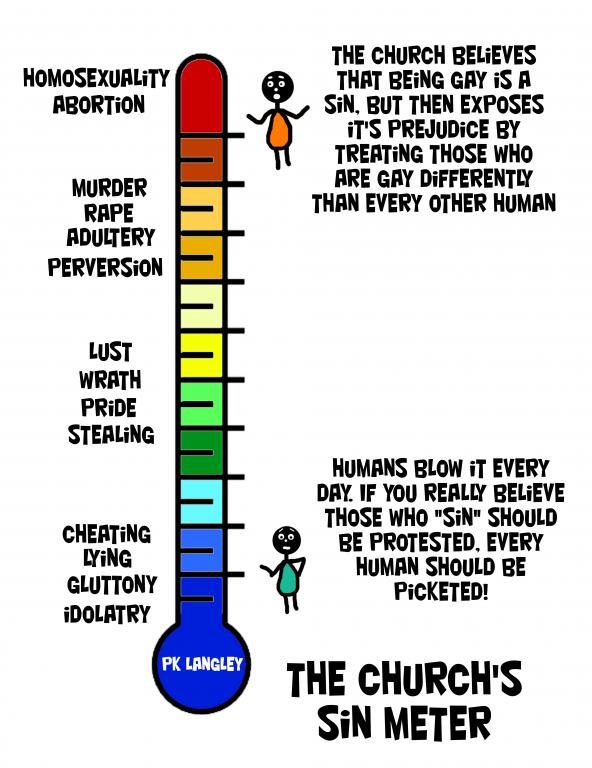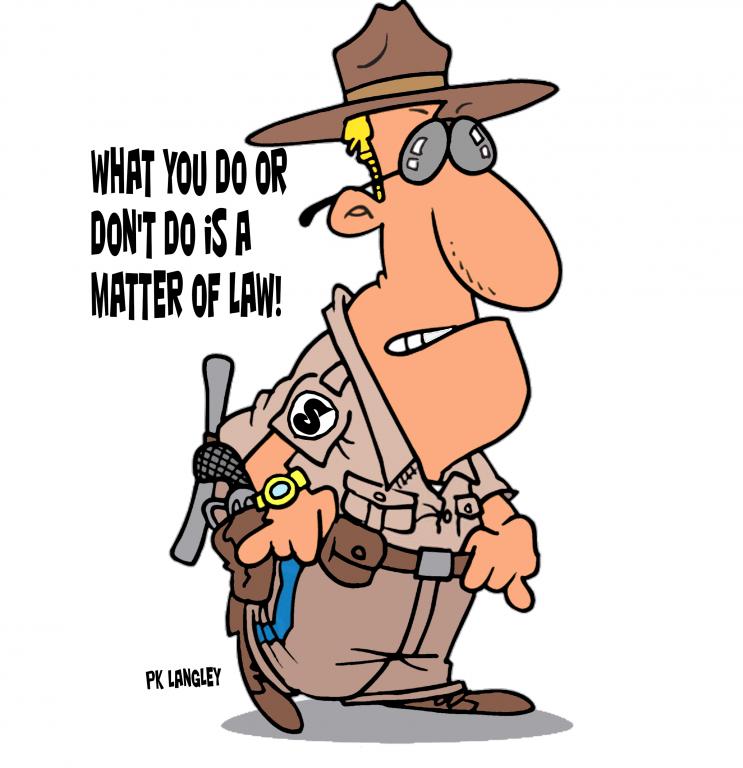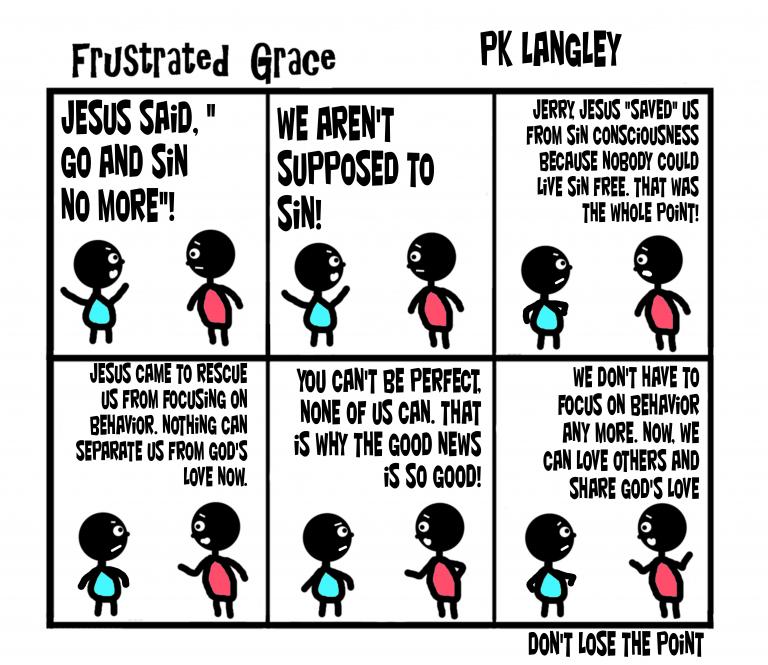 Sin or no Sin
Sin or no Sin
Plenty of volley’s fly back and forth across the religious legalistic net. Debate rages on for who is right and who is wrong according to their religious or non-religious stance. People picket abortion clinics and gay pride parades to point the proverbial “sinner finger” at those they believe are doing wrong. I want to propose to you that this isn’t the good news that we should be sharing.
Sin Police
Escaping Sins Punishment
Some people are struggling with what that “no condemnation” means. There are those who believe that they are non-punishable as long as they follow the tenets of their religion, yet they seem tempted to condemn those who do not follow those tenets. This is true for multiple religions.
Sin Degrees? 
Some, blatantly ignore their own behavior to focus on others, somehow quantifying that their “minor” sins are dismissed by God, even though they haven’t paid any religious dues. How many people sin every day in an unrepentant lifestyle, but demand that others find a greater measure of comeuppance? We forget the verse, “All have sinned and fallen short of the glory of God”. No one is perfect, not one.
Sin No More
We proclaim that Jesus is the only one who never sinned. In light of this, you would think that humanity would stop focusing so hard on what is sin and what isn’t. Jesus said, “Go and sin no more”, but the fact that not one human being is capable of “not sinning anymore” has somehow escaped us. We embraced Jesus as a “savior from our sins” and then we want to fixate on something our faith tells us is a moot issue? How strange we humans are!
Sin, a Non Issue
When we do something wrong, we used to believe that this act separated us from God. When we believed in Jesus as our savior, we embraced the “good news” that Paul, along with the other disciples declared. “Neither height nor depth, nor anything else in all creation, will be able to separate us from the love of God”. That “anything else” is primarily for us, the subject of sin. Being “under grace” is the understanding that behavior should no longer scare us with the threat of losing our eternal consciousness.
 Sin is Law
Sin is Law
Those who lived “under law” in Old Testament times, believed that the acts they committed that did not please God incurred a debt that sacrifice restored. Law is penal, and we can look at local law enforcement to witness that when an act breaks the law, payment is expected. Under the law, there is a righteousness that we achieve through good works. Men and women who felt they were “obeying” God’s law, had a danger of becoming self-righteous. This was evident in the Jewish religious leadership. The temptation of pride strikes when we feel we are in good standing and “perfect”, even if that perfection is obtained through sacrifice.
The Church and Sin
Today, the same works based righteousness is rampant in the church at large. Individuals who attend service regularly, pay tithes or serve on the elder board are doing things that they believe will please God. Seeing their sin as “cleansed”, some are quick to condemn those outside of the church. There has been a movement in the last twenty years to teach people about the power of grace. Yet, people continue to attend services with no understanding of the implication. By doing things to make God happy, we turn our backs on grace.
Sin is Not Counted Against Us!
If Christ truly paid for every sin I would ever commit in my entire life, then it is finished. All of my sins were in the future two thousand years ago. Every thing that you could ever do wrong for your whole life is of no consequence. You cannot blow it, mess up, or do something so bad God turns his back on you. God doesn’t even consider sin, so why do we? Perhaps it is because religion has a purpose for sin.
Sin for the Religious
The error of religion is to debate the fact that sin is a subject we need to even consider. Religion fears that people will run out and “sin their brains out” when they learn God no longer counts our sins against us. What if they do? If it’s covered, what is it to you? It terrifies the religious to admit that our sins do not separate us from God. If you ease the guilt, religion begins to wither to relationship.
Upside Down Sin
Tell a child that they cannot do something and watch what happens. Temptation is the result of telling someone that they cannot. Look at the story of Adam and Eve. God sets out a bountiful table for them and what is their singular focus? The forbidden fruit, like a hot stove that begs to be touched by the young mind when a parent says, “no”. When you educate the child of the hazards of a hot stove, you empower them to make a rational decision. When one understands the consequence, they can decide for themselves. This is empowerment instead of sin consciousness.
We Are Free
Paul said, “All things are permissible but not everything is beneficial”. He understood the power of grace and how much greater grace is over works based righteousness. When we understand that ourselves, we stop policing ourselves of “sin”. We rejoice in the good news! We understand that God is not in relationship with us according to what we do or don’t do.
Rest from Sin
When we “have believed”, we “enter into rest”. To know that nothing is counted against us should liberate us to relationship, not bootstrap us to a spree of reckless abandon to sin! This is the good news we should be sharing, not telling people what is okay to do and what is not. God is a good father, able to save to the uttermost! The gospel is good news that we can believe and leave the worry of behavior behind.

Available publications by Kimberly
All Things Equal, an exposition for women and how God sees them from a very “biblical” point of view. It was what I needed in my first push toward deconstruction. If you are still in a church, this is a great book to start.
Deconstruction tools
Start your Deconstruction with The Naked Gospel.
Another great Deconstruction help is Pagan Christianity. It helps you see the roots of Christianity and how we got to where we are now.
I also enjoyed So You Don’t want to Go to Church Anymore.
Mick Mooney is a great resource for help along the road.
Available short stories by PK Langley on Kindle for $1.37 each:
Not My Daughter!: A story too good to tell.
Diedre: What I learned when my son chose a girl.
For Nicholas: An encounter with the parents of Nicholas that changed perceptions.
The Needs Of The One: An encounter with a schizophrenic man that touched my soul.
Farm Lessons: Life and Death lessons are every day on a farm.
Check out, Paradigm shift to Spirit led living.
Read, “When the Good News Goes Bad” by clicking here.
You can find me on Facebook at “PK Langley”
Thank you for stopping by, I’d love to hear your comments!
